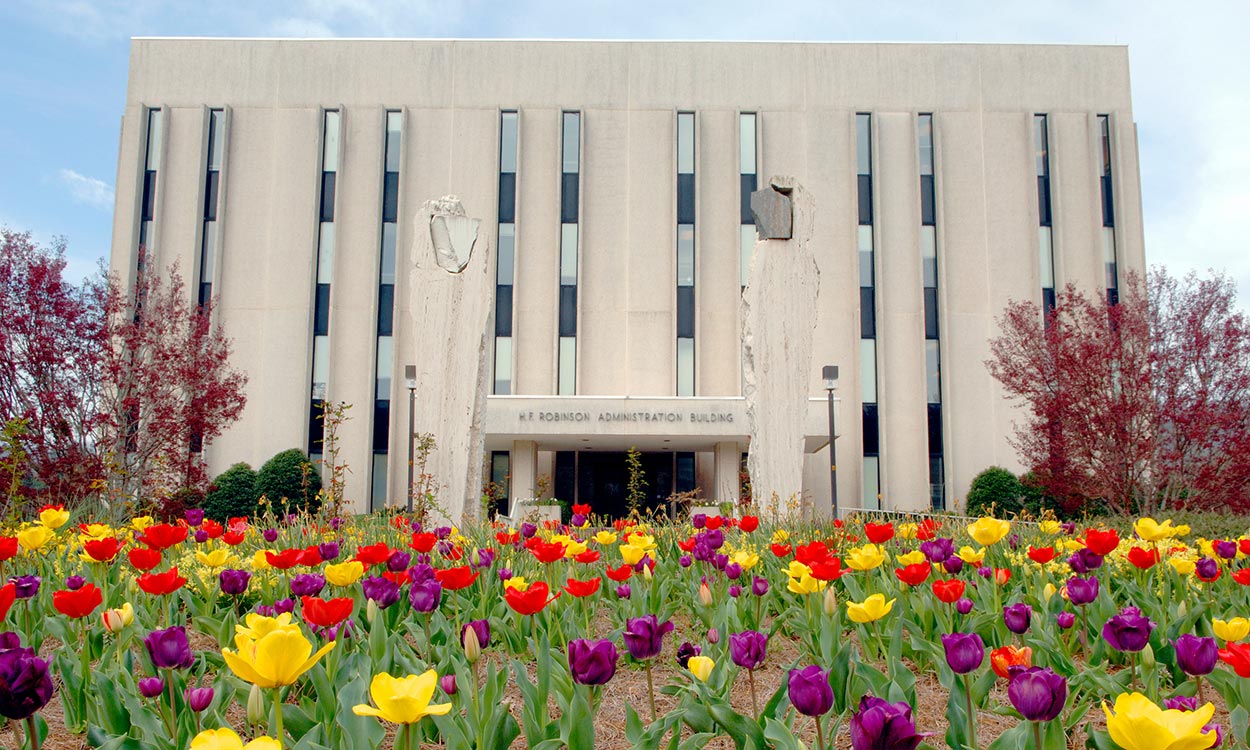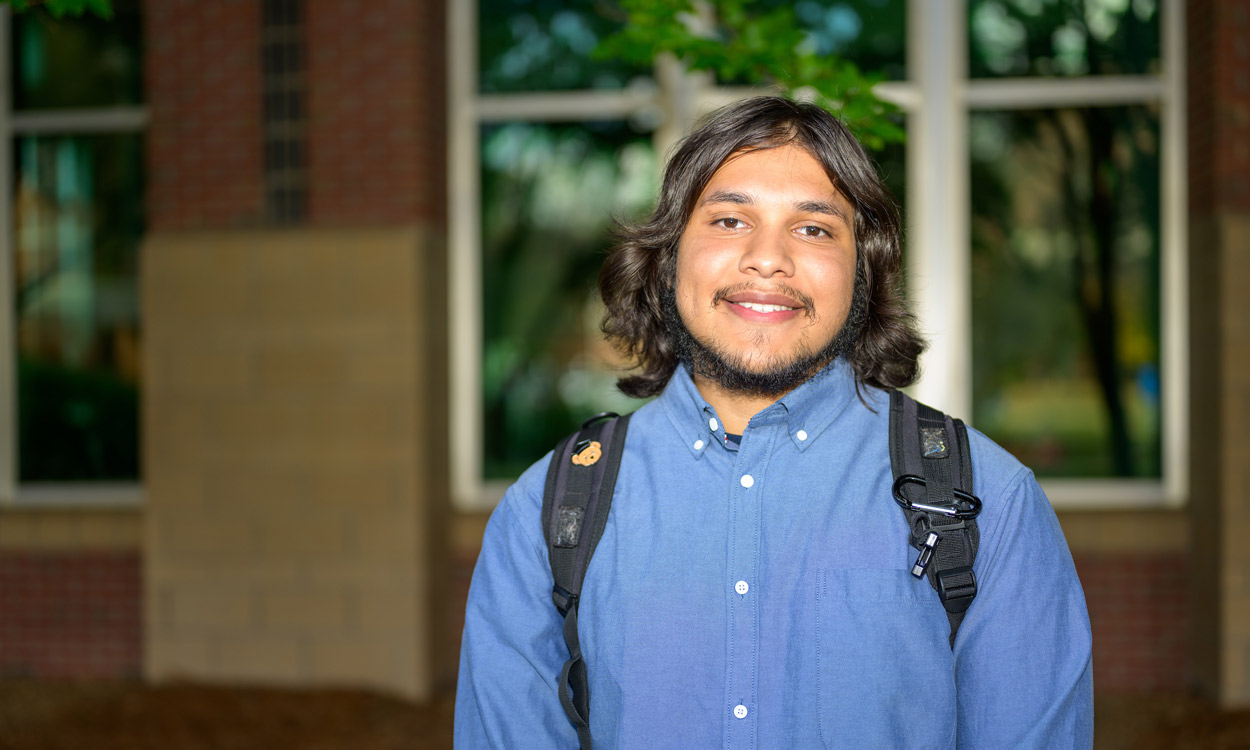Education faculty, students continue collaboration with Kenyan village school library
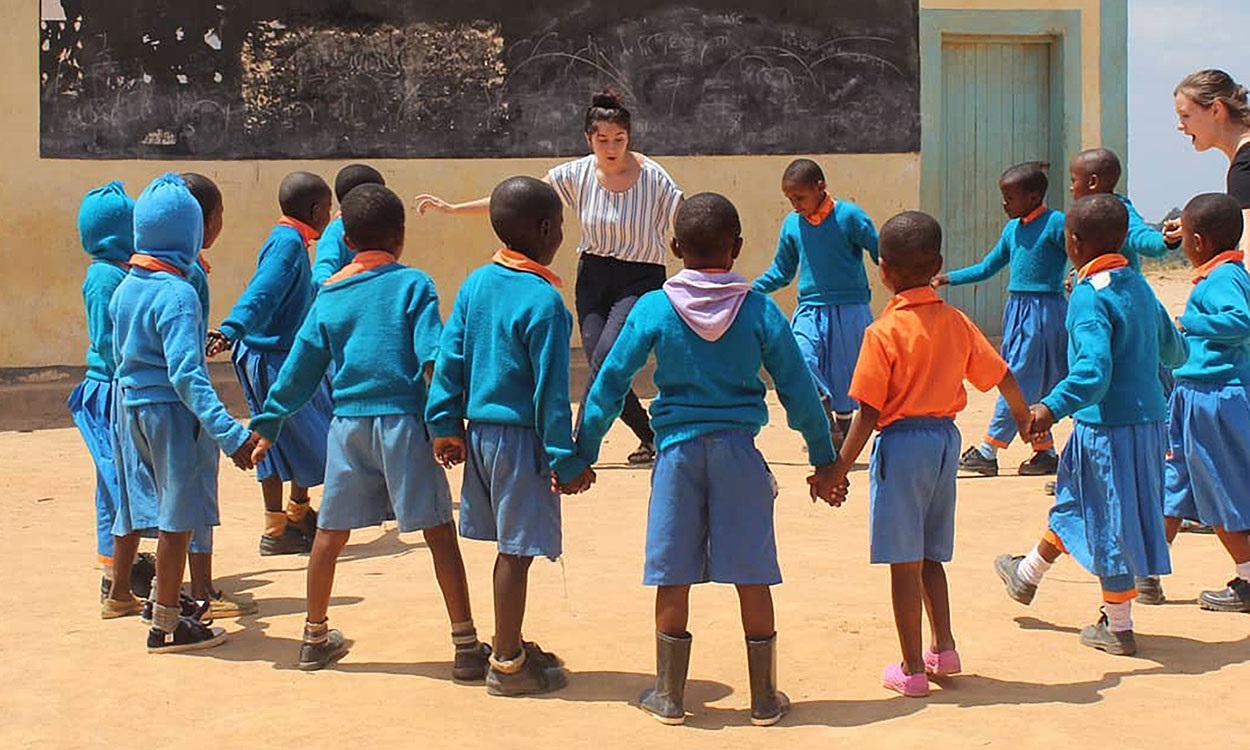
Kalliope Balatsias (center) leads a circle game at recess, with help from Brittany Elliott (far right).
Western Carolina University education faculty and students made a book delivery to a remote Kenyan village recently, refurbishing a school library while they were there.
Wongonyi, a scattered settlement located about five hours drive-time southwest of Nairobi, is isolated from major population centers by sheer distance and poor roads. Nine WCU students and three faculty members made the journey from Cullowhee to the African continent beginning Sept. 28, spending two weeks.
A call for book donations, on campus and in the community, went out in June from WCU’s Center for Service Learning, with more than 3,000 publications, from reference works such as almanacs and dictionaries to pre-teen fiction, sports and picture books, shipped to the village, said Rus Binkley, associate professor in WCU’s School of Teaching and Learning and trip organizer.
“We’ve been coming to Wongonyi for several years, and we have always learned so much and are hosted so warmly,” Binkley said. “The library project was one way we wanted to show our appreciation and gratitude for their openness to our visits.”
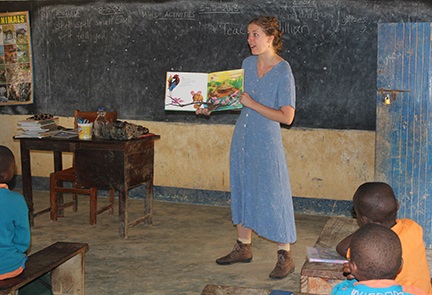
Jillian Stewart was one of several WCU students getting an opportunity to teach in the classroom.
“The village was nothing like I imagined before arriving,” said Brittany Elliott of Shawboro, an elementary education major. “I pictured houses and stores close together. In reality, everything was spread out. The homestead where we stayed was located at the top of a large mountain that overlooked a beautiful landscape of vibrant trees and plants. We walked 15 minutes to the school, where we observed and taught every morning and sometimes in the afternoons. On our way, we’d pass through the town where stores and people lined the old dirt road. Everyone we passed was so friendly and eager to shake hands. They wanted to know where we were from and what we were doing in Wongonyi.”
Books were a lifeline for Binkley, who recalls his own childhood of living in a rural area without library accessibility. The Wongonyi library project was also an opportunity for Binkley’s wife, Kathy, to create a documentary about the experience.
“Every time we were working in the library, children would come up to the windows and ask us to give them books,” said Jocelyn Landt of Canton, another elementary education program major who made the trip. “They were so excited for the library to be open to them. When we were finally able to open the library, we got to be a part of helping the students learn how to properly handle books. The teachers were unbelievably grateful to have so many new resources for their classes.”
The villagers were curious and wanted to obtain as much knowledge as they could in one small conversation with their visitors, Elliott said. “I was amazed to feel so welcomed,” she said. “It was as if we weren’t strangers at all. The children at the school were even more amazing. They were knowledgeable and filled with laughter.”
WCU students helped organize books on shelves or labeled the books, while others cleaned and helped set up the front area where the local students could sit and read.
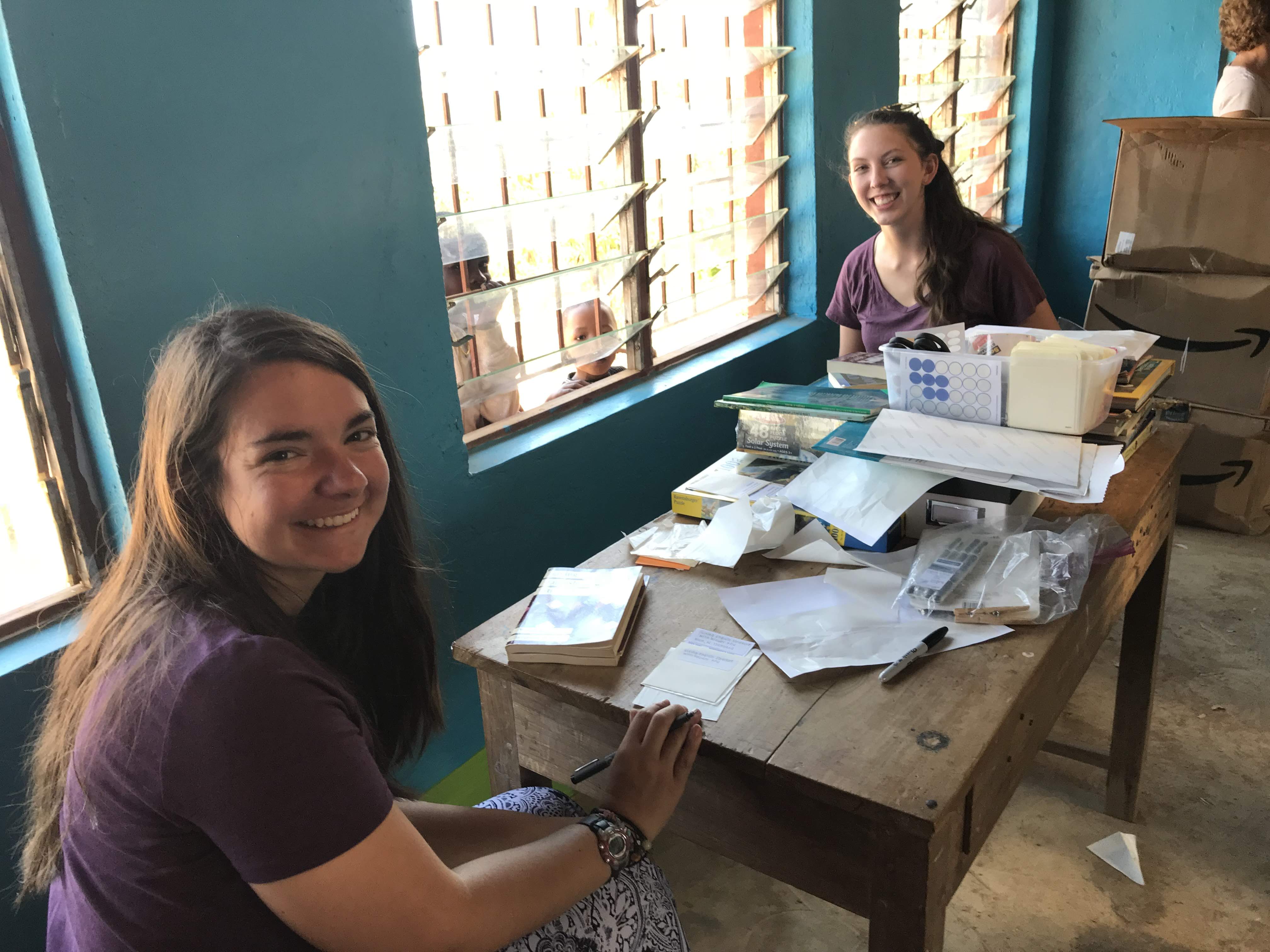
Amber Henry (left) and Jocelyn Landt label and process books to put on the library shelves.
“Being able to watch the library come to life and see all of the people’s faces ― not just the students, but the adults, too ― light up at the sight of all the books was priceless,” said Amber Whitaker, an elementary education major from Fairview. “I hope that the library continues to grow and that the people in Wongonyi are able to enjoy the gifts that books bring to anyone who reads them.”
The WCU contingent also collaborated with classroom activities and teaching during its stay.
“I had the opportunity to teach a couple of lessons to the third grade,” Whitaker said. “I enjoyed getting to teach the students English and mathematics. But looking back, I think they were the ones that taught me. Truly, these children were so intelligent, and they amazed me at their level of excitement for learning. They gave me a lifetime lesson about education in a way that helped broaden my perspective and made me value the importance of education even more.”
Besides the hands-on school improvement work, the experiential aspect of the trip was rewarding in ways that go beyond teaching career preparation, the WCU faculty and students agreed.
“I think one of the most important features for us is that this work is part of an ongoing relationship that WCU faculty and students have had with the school in Wongonyi,” said Melissa Faetz, an instructor in the School of Teaching and Learning. “The teachers, students, and others in the village have welcomed WCU faculty and students for a number of years. They have allowed our teacher candidates to observe in classrooms, teach lessons and learn from both the teachers and students at the school. Although we did collect donations and work to refurbish the library, this was not simply mission or charity work. Our work in the school library was in the spirit of gratitude for everything they have taught us.”
Members of the WCU group arranged for Nadine Abrahams, a school librarian from Denver, Colorado, to meet them in Wongonyi to lend professional expertise in organizing the library and lead teacher development. Her husband, Norman Epp, a carpenter, assisted the WCU contingent and villagers in the renovations. Villagers were hired to do carpentry, paint, fix a leaky roof and make other repairs, doing the bulk of the labor themselves.
“I think something like this changes a person. It can’t help but change a person,” Pam Buskey, assistant professor in WCU’s School of Teaching and Learning, said of the trip, her first. “I think we’re all on a continuum of understanding ourselves and how we fit into this big world of cultures, and on this trip I saw students moving in that continuum beautifully. They moved to a new level of cultural proficiency.”
